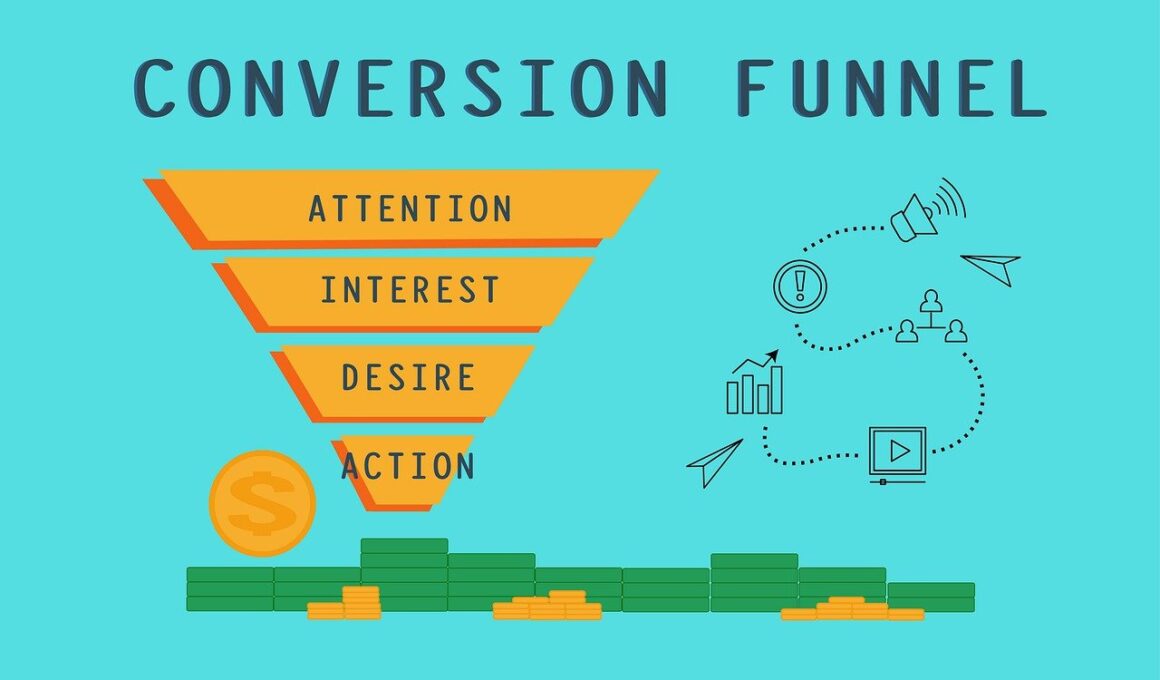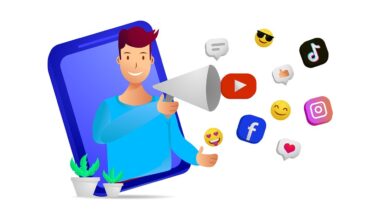Automating Your B2B Marketing Funnel for Increased Efficiency
In today’s competitive landscape, mastering effective B2B marketing funnels is crucial for success. Automating parts of your marketing funnel can streamline operations and drive efficiency. By implementing automation tools, you can effectively nurture leads and keep potential clients engaged throughout their journey. These tools allow you to send personalized content based on customer behavior, ensuring that your messaging aligns with their needs. Incorporating automation into your marketing strategy can yield significant benefits, such as increased conversion rates and reduced marketing costs. Moreover, it allows your team to focus on high-level strategy, rather than tedious manual tasks. You can define clear call-to-action strategies, ensuring that leads move efficiently from one stage of the funnel to the next. Consider using solutions such as CRM systems, email marketing automation, and analytics tools to optimize every touchpoint. Ultimately, an automated marketing funnel helps you to maintain consistency, providing a seamless experience for your prospects. Remember, the key to successful automation lies in understanding your audience and crafting tailored content that resonates with them.
Before diving into automation, it’s essential to establish a clear understanding of your marketing funnel. This funnel represents the journey a buyer takes from awareness to decision-making. The first stage, awareness, involves attracting a wide audience through various channels like social media, blogs, or webinars. Once prospects engage, nurturing them through informative content is crucial. Retaining interest in your products is vital for conversion. Mapping out your funnel stages allows for identifying automation opportunities, helping streamline the entire process. Implementing tools that manage key tasks at each stage frees up valuable resources. Utilize platforms like HubSpot or Marketo, which offer integrated automation capabilities tailored for B2B marketers. In addition to streamlining tasks, these tools will enable you to track and measure results in real-time. Make data-driven decisions to refine your approach, ensuring that optimization continually evolves. Focus on key performance indicators (KPIs) such as lead conversion rates, customer acquisition costs, and lifetime value. Understanding these metrics ensures that automation aligns with your overall business goals. Hence, investing initial effort in defining your funnel will yield insights benefiting long-term strategy.
The Role of Content in Your Automated Funnel
Content plays a vital role in the effectiveness of your automated B2B marketing funnel. Providing valuable content that addresses your audience’s pain points significantly enhances engagement. Create various content types, such as whitepapers, eBooks, case studies, and blog posts that resonate with their specific needs. More so, delivering personalized content at the right time increases the chances of conversions. For example, if a lead shows interest in a specific service or product, sending tailored information that highlights its benefits can drive them further down the funnel. Utilize marketing automation software to track user behavior and segment your audience accordingly. Automated emails that follow up on interactions or download requests can keep prospects engaged. Crucially, crafting compelling subject lines and clear calls-to-action enhances click-through rates, leading readers toward conversion. Collaborate with your sales team to identify common objections and address them within your content. By doing so, you’ll not only educate your leads but also establish trust in your brand. This impactful strategy can help boost your credibility and authority in your market, paving the path to successful conversions.
The integration of AI technologies into your B2B marketing funnel can further enhance automation benefits. AI can analyze massive amounts of data quickly, identifying patterns and trends that could take humans much longer to recognize. By leveraging AI-driven tools, you can optimize targeting and refine messaging strategies. Predictive analytics can forecast potential customer behavior, allowing marketers to tailor their approach to the upcoming actions of leads. Moreover, chatbots can provide immediate responses to inquiries, addressing customer questions around the clock. This instantaneous communication ensures that no lead goes unnoticed or ignored. Automating lead scoring through AI algorithms helps prioritize follow-ups based on engagement behavior, ensuring that your sales team focuses on high-potential prospects. The role of AI should not overshadow human insight but rather serve to enhance it. The combined forces of human strategy and AI capabilities create a dynamic marketing approach. Regularly evaluating the performance metrics of your automated funnel will ensure continued improvement. Embrace change and remain adaptive as technology evolves, ensuring your B2B marketing efforts stay ahead of the curve.
Measuring Success in Automated Funnels
Measuring success in your automated B2B marketing funnel is foundational for optimization. Implement robust analytics tools to monitor performance at every stage of the funnel. Key metrics to track include click-through rates, conversion rates, and engagement levels across your content. Understanding drop-off points in the funnel can identify areas needing improvement, enhancing overall efficiency. A/B testing can also be beneficial in understanding what resonates most with your audience. Try testing subject lines, sender names, email layouts, and content types to gather actionable insights. Additionally, leveraging customer feedback through surveys or interviews post-purchase can inform your approach and highlight what works. Setting specific, measurable goals for your automation strategy ensures that every initiative aligns with your overarching objectives. Utilize reporting features within your automation tools to visualize data trends over time. Pay attention to ROI calculations as they indicate the financial viability of your marketing efforts. Regularly assess these metrics, ensuring your strategy adapts according to performance, ultimately driving continuous improvement within your marketing funnel.
Continuous optimization of your automated marketing funnel is essential to keep pace with industry changes and evolving buyer behaviors. Regularly revisiting and analyzing your automation strategy will highlight what’s working effectively and which areas require adjustments. Conduct routine audits to assess the performance of your email campaigns, social media posts, and other automated processes. Strive for an agile approach, as flexibility helps you to incorporate new trends or shifts in audience preferences quickly. Engaging with users through feedback loops will foster warm client relationships while also gathering critical insights on experiences and expectations. Technology is evolving rapidly, and so too should your automation strategies. Innovations like machine learning can refine targeting and streamline processes, allowing for even more tailored customer experiences. Consider investing in training and workshops for your team on the latest digital marketing tools and strategies to maintain competitiveness. Their increased skills will translate into improved implementation of your automation processes. Flexibility in your approach enables you to adapt while still staying focused on your conversion goals. The ultimate aim is to drive higher revenues while ensuring every marketing effort adds undeniable value.
Conclusion: Future of Automated B2B Marketing Funnels
The landscape of B2B marketing is continually shaped by technological advancements, positioning automation at the forefront of successful strategies. As businesses strive for greater efficiency, the importance of optimizing marketing funnels cannot be overstated. Embracing automation creates more streamlined and effective processes, allowing marketers to concentrate on strategic growth initiatives. In the future, it is anticipated that automation technologies will evolve further, integrating deeper customer insights and enabling even more personalized engagement. As a result, B2B marketers must stay ahead by regularly evaluating and fine-tuning their approaches. The rise of AI and machine learning will continue to influence how businesses engage with prospects. Emphasizing agility in adapting to these changes will be critical for sustained success. Building a robust marketing strategy that incorporates automation helps businesses not only meet but exceed customer expectations. Nurturing leads with the right content and timely interactions enhances the likelihood of conversion and fosters loyalty. Organizations dedicated to ongoing learning and adaptation will emerge as leaders in the market, ensuring marketing funnels remain relevant and effective in achieving business goals.
Assessment of your automated marketing funnel is vital not only for current performance but also for future strategy alignment. Major shifts often call for revisiting foundational aspects of your funnel design. Even as technology enhances efficiency, understanding your audience’s ever-changing needs ensures continued relevance. This knowledge would inform your future automation strategies and guide technology investments. Furthermore, involving your sales and customer service teams can provide critical insights into lead interactions, ensuring that marketing strategies resonate across departments. Continuing to invest in education regarding the latest trends and automation capabilities also enhances your team’s effectiveness. Together, integrating key stakeholder perspectives fosters a coherent approach to improve the funnel’s performance. Ultimately, achieving automation’s full potential requires a keen focus on developing relationships alongside innovations. The true measure of success extends beyond metrics; it lies in enhancing customer experiences and building trust. Adapting your strategies over time creates a resilient marketing framework capable of driving sustained growth. In conclusion, embracing these principles positions your B2B marketing funnel for long-term success, facilitating not only immediate project goals but also aiding in establishing lasting partnerships with clients.


